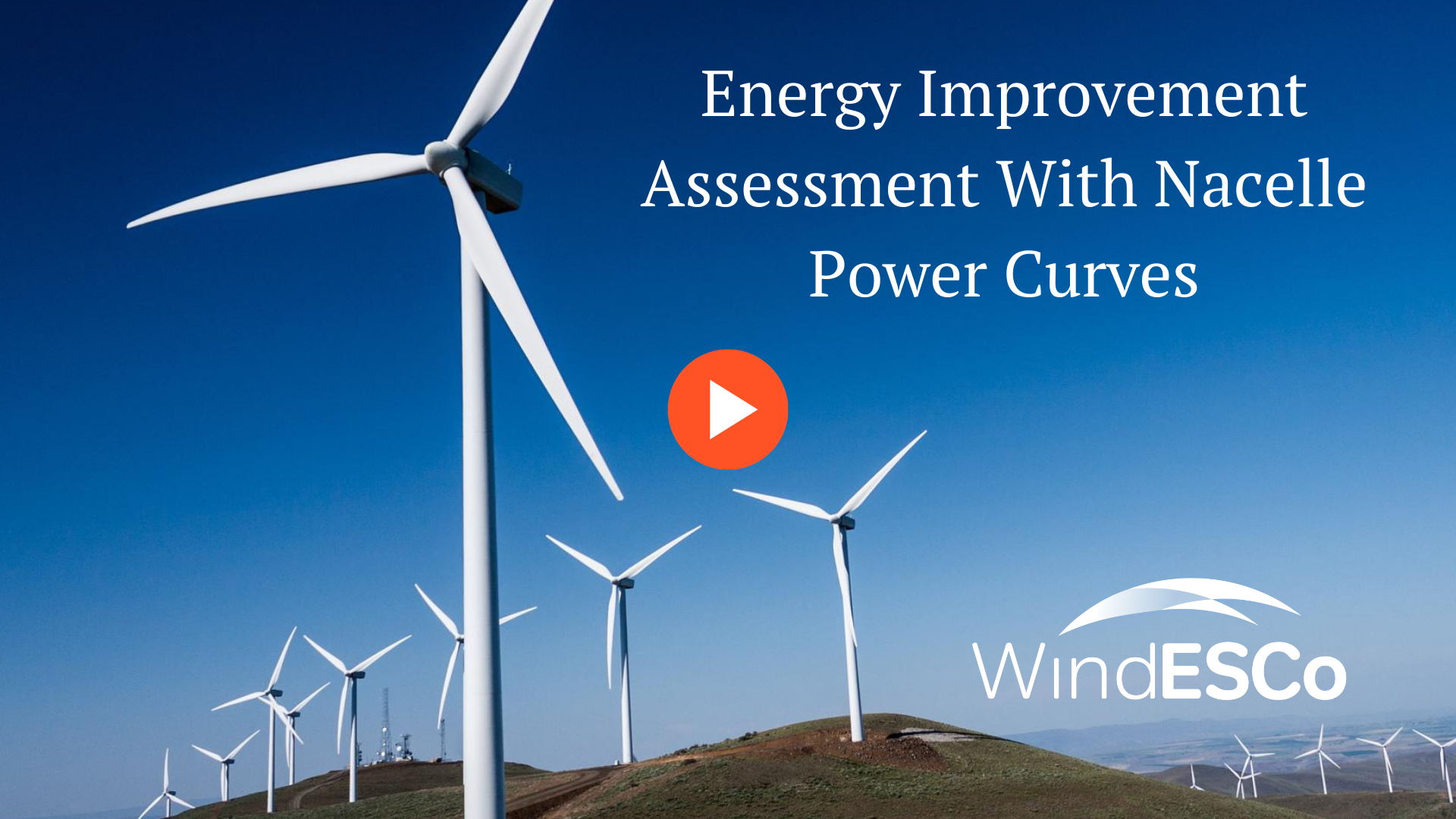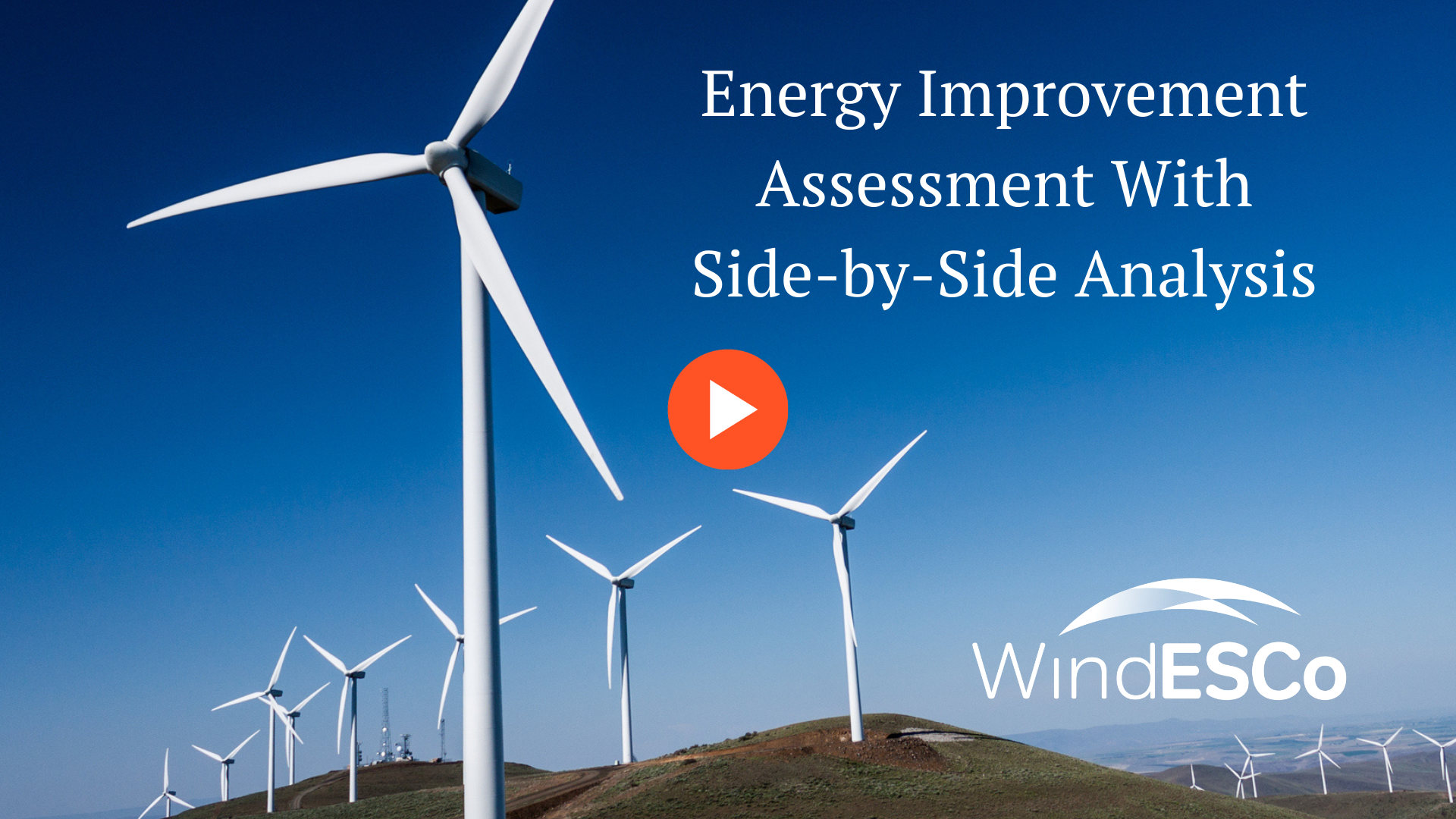Wind turbine wakes may damage your revenue — and your turbines.
The Wake Effect As wind turbines operate, energy is extracted from the inflow, creating a waked region downstream. As wakes propagate through the...
2 min read
Jonathan Kossuth Mar 22, 2021 12:00:53 PM

Contributed by Jonathan Kossuth, Director of Analytics at WindESCo
Your wind turbines may be underperforming, though you may not realize it.
Underperformance in turbines can be difficult to detect – it may be as little as 1%, though some turbines may be falling short by up to 5-10%.
The overall impact of wind turbine underperformance is becoming more and more significant as power grids increasingly rely on wind energy. The US wind industry, for example, had its strongest year ever in 2020 when nearly 17,000 MW of new capacity was added to the grid – this was an 85% increase on the previous year, according to recent figures published by the American Clean Power Association. As power providers and energy investors increase the number of wind assets in their portfolios, they are starting to look more critically at turbine and plant performance.
Wind turbine under-performance can be attributed to many issues. For example:
While original equipment manufacturers(OEMs) take much pride in their work, they are not necessarily looking as hard as they could to find performance problems in their machines. Instead they take a binary approach – their turbines are either broken or they’re not broken.
When operators suspect performance issues, an atmosphere of mistrust between operators and OEMs can arise. A challenge, considering many are contractually obligated to one another through decades-long service agreements.
At WindESCo, we take a different approach from the binary: We look to ensure the optimal performance of a turbine, plant or fleet. When issues are identified, we can work with OEMs to fix them so our customers' assets meet performance expectations.
Increase your profits
Many wind turbine operators think their turbines are not performing optimally. At WindESCo, we find underperforming turbines and fix them. This performance improvement goes right to the customer’s bottom line.
Our independent viewpoint helps customers improve AEP and overall fleet value. We have expertise in wind farms across multiple turbine models and have conducted analysis on hundreds of plants, which has created a deep knowledge base we can use to compare the performance of our customers’ turbines.
WindESCo conducts a customized analysis of your turbines—sometimes we are able to fix anomalies and add 2-5% AEP improvement, while in other cases, we determine that turbines are functioning optimally. Either way, we provide our customers peace of mind that they are capturing all the potential value from their assets.
Talk to us if you want to improve annual energy performance and the overall value of your fleet. Get in touch. We will help you find a solution.

The Wake Effect As wind turbines operate, energy is extracted from the inflow, creating a waked region downstream. As wakes propagate through the...

In our last video, we laid out the basic requirements for a successful methodology to assess the energy improvement from wind turbine upgrades: ...

Welcome back to our series looking at methodologies for assessing the energy improvement from wind turbine upgrades. In previous videos, we’ve shown...